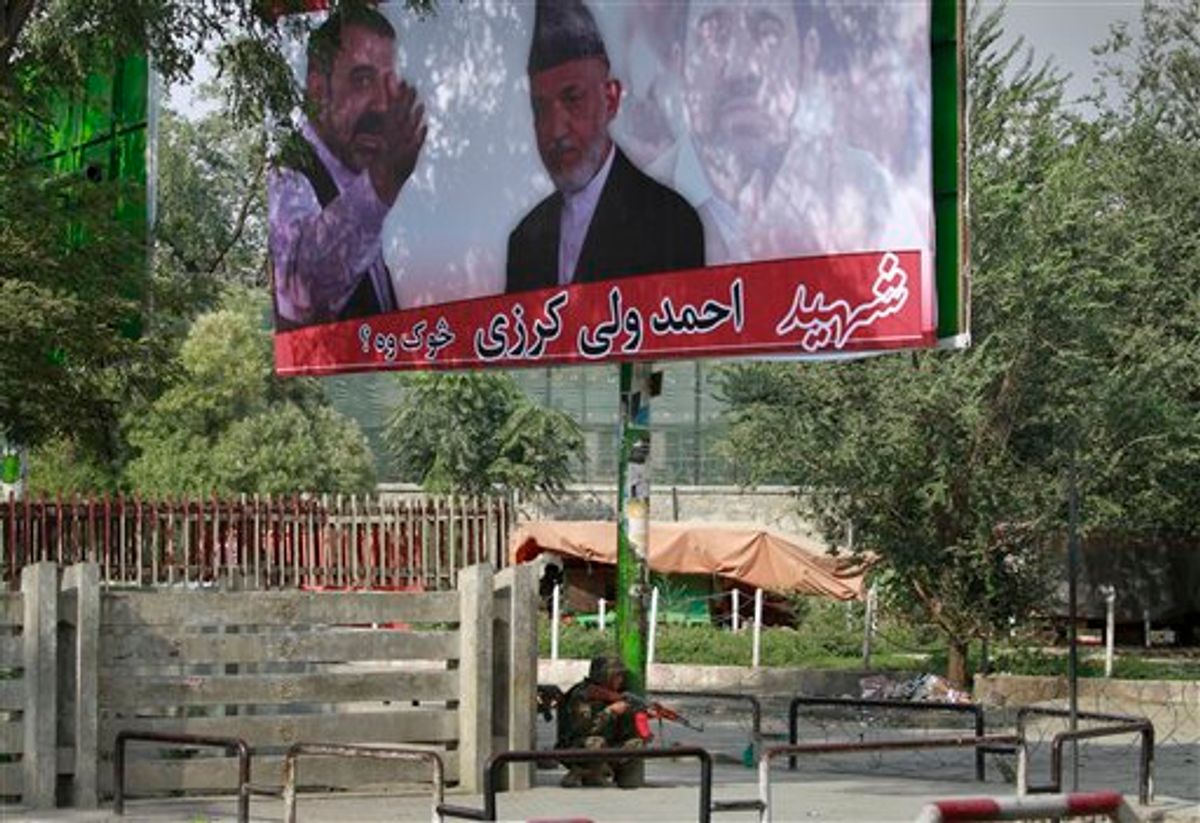The U.S. ambassador to Afghanistan on Wednesday blamed the Pakistani-based Haqqani network for the coordinated attack against the American Embassy and NATO headquarters in the heart of Kabul.
Ryan Crocker said the attack, which ended just at dawn after a 20-hour gunbattle, would not affect the transfer of security responsibilities from the U.S.-led military coalition to the Afghan security forces. Foreign forces are to completely withdraw their combat troops by the end of 2014.
"Transition will proceed on pace," Crocker said.
The Haqqani network is a Pakistan-based group affiliated with both the Taliban and al-Qaida and has emerged as one of the biggest threats to stability in Afghanistan. The group retains bases in the lawless tribal areas of western Pakistan, including North Waziristan, using those safe havens to launch attacks against U.S. and Afghan forces across the border.
The 20-hour attack in the heart of Kabul ended after a final volley of helicopter gunfire as Afghan police ferreted out and killed the last few assailants who had taken over a half-built downtown building to fire on nearby U.S. Embassy and NATO compounds.
At least six Afghans -- four police officers and two civilians -- died across the city in what was a coordinated attack that started Tuesday, the Kabul police department said. By Wednesday morning, all assailants, including at least six in the building close to the U.S. embassy, were dead.
Two or three of the assailants had held out overnight in the unfinished, 11-story high-rise at a major traffic circle in the capital, but were killed in the final morning assault by Afghan forces, said Hashmat Stanekzai, a spokesman for the Kabul police chief.
"The terrorist attack in Kabul is over," the Interior Ministry said in a statement.
The assault also included attempted suicide bombings in different parts of Kabul and raised fresh doubts about the Afghans' ability to secure their nation as U.S. and other foreign troops begin to withdraw.
No NATO or U.S. Embassy employees were hurt in the attack.
Nearly all Taliban attacks in and around the Afghan capital have been carried out by the Haqqanis -- including a weekend truck bombing in eastern Wardak province that wounded 77 U.S. soldiers.
"It's tough when you're trying to fight an insurgency that has a lot of support outside the national borders," Crocker said.
"The information available to us, is that these attackers, like those who carried out the bombing in Wardak are part of the Haqqani network, they enjoy safe havens in Northern Waziristan," Crocker also said
U.S. officials have been pressing Pakistan to go after Haqqani militants. But relations with Islamabad have not been good, particularly after the U.S. raid in May that killed al-Qaida chief Osama bin Laden in the Pakistani garrison town of Abbottabad.
Crocker said it was in the long-term interest of Pakistan, Afghanistan and the international community to bring under control the Haqqanis and other groups that retain safe havens across the border.
"Having spent time in Pakistan I am aware of the challenges they face. This is not easy for them either, and they have lost a lot of soldiers" fighting the same enemy, Crocker said. "It's complicated, it's difficult but clearly for a long term solution those safe havens have to be reduced whether they are in North Waziristan or Baluchistan."



Shares